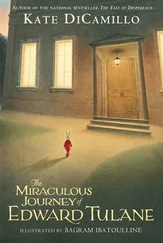Edward Forster - The Longest Journey
Здесь есть возможность читать онлайн «Edward Forster - The Longest Journey» весь текст электронной книги совершенно бесплатно (целиком полную версию без сокращений). В некоторых случаях можно слушать аудио, скачать через торрент в формате fb2 и присутствует краткое содержание. Жанр: Классическая проза, на английском языке. Описание произведения, (предисловие) а так же отзывы посетителей доступны на портале библиотеки ЛибКат.
- Название:The Longest Journey
- Автор:
- Жанр:
- Год:неизвестен
- ISBN:нет данных
- Рейтинг книги:5 / 5. Голосов: 1
-
Избранное:Добавить в избранное
- Отзывы:
-
Ваша оценка:
- 100
- 1
- 2
- 3
- 4
- 5
The Longest Journey: краткое содержание, описание и аннотация
Предлагаем к чтению аннотацию, описание, краткое содержание или предисловие (зависит от того, что написал сам автор книги «The Longest Journey»). Если вы не нашли необходимую информацию о книге — напишите в комментариях, мы постараемся отыскать её.
The Longest Journey — читать онлайн бесплатно полную книгу (весь текст) целиком
Ниже представлен текст книги, разбитый по страницам. Система сохранения места последней прочитанной страницы, позволяет с удобством читать онлайн бесплатно книгу «The Longest Journey», без необходимости каждый раз заново искать на чём Вы остановились. Поставьте закладку, и сможете в любой момент перейти на страницу, на которой закончили чтение.
Интервал:
Закладка:
"My love, why?"
Robert said that he loved her.
"Then I am de trop," said Mr. Elliot, smoothing out his gloves. He would give these sodden barbarians a lesson. "My hansom is waiting at the door. Pray make use of it."
"Don't!" she cried, almost affectionately. "Dear Frederick, it isn't a play. Just tell this man to go, or send for the police."
"On the contrary; it is French comedy of the best type. Don't you agree, sir, that the police would be an inartistic error?" He was perfectly calm and collected, whereas they were in a pitiable state.
"Turn him out at once!" she cried. "He has insulted your wife. Save me, save me!" She clung to her husband and wept. "He was going I had managed him—he would never have known—" Mr. Elliot repulsed her.
"If you don't feel inclined to start at once," he said with easy civility, "Let us have a little tea. My dear sir, do forgive me for not shooting you. Nous avons change tout cela. Please don't look so nervous. Please do unclasp your hands—"
He was alone.
"That's all right," he exclaimed, and strolled to the door. The hansom was disappearing round the corner. "That's all right," he repeated in more quavering tones as he returned to the drawing-room and saw that it was littered with sweet-peas. Their colour got on his nerves—magenta, crimson; magenta, crimson. He tried to pick them up, and they escaped. He trod them underfoot, and they multiplied and danced in the triumph of summer like a thousand butterflies. The train had left when he got to the station. He followed on to London, and there he lost all traces. At midnight he began to realize that his wife could never belong to him again.
Mr. Failing had a letter from Stockholm. It was never known what impulse sent them there. "I am sorry about it all, but it was the only way." The letter censured the law of England, "which obliges us to behave like this, or else we should never get married. I shall come back to face things: she will not come back till she is my wife. He must bring an action soon, or else we shall try one against him. It seems all very unconventional, but it is not really, it is only a difficult start. We are not like you or your wife: we want to be just ordinary people, and make the farm pay, and not be noticed all our lives."
And they were capable of living as they wanted. The class difference, which so intrigued Mrs. Failing, meant very little to them. It was there, but so were other things.
They both cared for work and living in the open, and for not speaking unless they had got something to say. Their love of beauty, like their love for each other, was not dependent on detail: it grew not from the nerves but from the soul.
"I believe a leaf of grass is no less than the journey work of the stars And the pismire is equally perfect, and a grain of sand, and the egg of the wren, And the tree toad is a chef-d'oeuvre for the highest, And the running blackberry would adorn the parlours of heaven."
They had never read these lines, and would have thought them nonsense if they had. They did not dissect—indeed they could not. But she, at all events, divined that more than perfect health and perfect weather, more than personal love, had gone to the making of those seventeen days.
"Ordinary people!" cried Mrs. Failing on hearing the letter. At that time she was young and daring. "Why, they're divine! They're forces of Nature! They're as ordinary as volcanoes. We all knew my brother was disgusting, and wanted him to be blown to pieces, but we never thought it would happen. Do look at the thing bravely, and say, as I do, that they are guiltless in the sight of God."
"I think they are," replied her husband. "But they are not guiltless in the sight of man."
"You conventional!" she exclaimed in disgust. "What they have done means misery not only for themselves but for others. For your brother, though you will not think of him. For the little boy—did you think of him? And perhaps for another child, who will have the whole world against him if it knows. They have sinned against society, and you do not diminish the misery by proving that society is bad or foolish. It is the saddest truth I have yet perceived that the Beloved Republic"—here she took up a book—"of which Swinburne speaks"—she put the book down—"will not be brought about by love alone. It will approach with no flourish of trumpets, and have no declaration of independence. Self-sacrifice and—worse still—self-mutilation are the things that sometimes help it most, and that is why we should start for Stockholm this evening." He waited for her indignation to subside, and then continued. "I don't know whether it can be hushed up. I don't yet know whether it ought to be hushed up. But we ought to provide the opportunity. There is no scandal yet. If we go, it is just possible there never will be any. We must talk over the whole thing and—"
"—And lie!" interrupted Mrs. Failing, who hated travel.
"—And see how to avoid the greatest unhappiness."
There was to be no scandal. By the time they arrived Robert had been drowned. Mrs. Elliot described how they had gone swimming, and how, "since he always lived inland," the great waves had tired him. They had raced for the open sea.
"What are your plans?" he asked. "I bring you a message from Frederick."
"I heard him call," she continued, "but I thought he was laughing. When I turned, it was too late. He put his hands behind his back and sank. For he would only have drowned me with him. I should have done the same."
Mrs. Failing was thrilled, and kissed her. But Mr. Failing knew that life does not continue heroic for long, and he gave her the message from her husband: Would she come back to him?
To his intense astonishment—at first to his regret—she replied, "I will think about it. If I loved him the very least bit I should say no. If I had anything to do with my life I should say no. But it is simply a question of beating time till I die. Nothing that is coming matters. I may as well sit in his drawing-room and dust his furniture, since he has suggested it."
And Mr. Elliot, though he made certain stipulations, was positively glad to see her. People had begun to laugh at him, and to say that his wife had run away. She had not. She had been with his sister in Sweden. In a half miraculous way the matter was hushed up. Even the Silts only scented "something strange." When Stephen was born, it was abroad. When he came to England, it was as the child of a friend of Mr. Failing's. Mrs. Elliot returned unsuspected to her husband.
But though things can be hushed up, there is no such thing as beating time; and as the years passed she realized her terrible mistake. When her lover sank, eluding her last embrace, she thought, as Agnes was to think after her, that her soul had sunk with him, and that never again should she be capable of earthly love. Nothing mattered. She might as well go and be useful to her husband and to the little boy who looked exactly like him, and who, she thought, was exactly like him in disposition. Then Stephen was born, and altered her life. She could still love people passionately; she still drew strength from the heroic past. Yet, to keep to her bond, she must see this son only as a stranger. She was protected be the conventions, and must pay them their fee. And a curious thing happened. Her second child drew her towards her first. She began to love Rickie also, and to be more than useful to him. And as her love revived, so did her capacity for suffering. Life, more important, grew more bitter. She minded her husband more, not less; and when at last he died, and she saw a glorious autumn, beautiful with the voices of boys who should call her mother, the end came for her as well, before she could remember the grave in the alien north and the dust that would never return to the dear fields that had given it.
Читать дальшеИнтервал:
Закладка:
Похожие книги на «The Longest Journey»
Представляем Вашему вниманию похожие книги на «The Longest Journey» списком для выбора. Мы отобрали схожую по названию и смыслу литературу в надежде предоставить читателям больше вариантов отыскать новые, интересные, ещё непрочитанные произведения.
Обсуждение, отзывы о книге «The Longest Journey» и просто собственные мнения читателей. Оставьте ваши комментарии, напишите, что Вы думаете о произведении, его смысле или главных героях. Укажите что конкретно понравилось, а что нет, и почему Вы так считаете.












